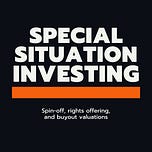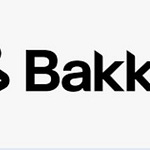Welcome to Episode 134 of Special Situation Investing.
In 1877, Mr. J. Walter Thompson purchased the advertising firm, Carlton and Smith, from his then employer for $500. After purchasing the company, he changed the name from Carlton and Smith, to J. Walter Thompson, but continued to develop the company as an advertising firm. Mr Thompson led the company from 1877 through 1916, when he sold it for $500,000 dollars, having compounded his initial $500 dollar investment at 19.4% annually over his 39 year tenure as chief executive.
Compounding capital at 19.4% per year over 39 years is something that few investors ever accomplish, and yet it still understates Mr Thompson’s achievement. Not only did he grow his company at a legendary rate of return over an extended period of time, but he also lived a prosperous life on the income from the company while he ran it. Mr. Thompson was a longtime member of the New York Yacht Club and traveled abroad nearly every year for twenty years. Imagine how rare it must be to not only grow your capital at close to 20% per year for decades, but also to live well from the proceeds of the investment in the intervening years.
Further setting J. Walter Thompson apart from ordinary business leaders is the way in which he achieved his success. The company he purchased and grew over 39 years was, in essence, built on intellectual capital. As an advertising firm, the company produced no physical products and its services were no more than a combination of readily available public information packaged in new and insightful ways.
Of the firms many iconic ad campaigns, its 1896 slogan, “Prudential has the strength of Gibraltar,” demonstrates well how intellectual capital was monetized. Mortimer Remington, one of the company’s executives, recognized Prudential's need to be connected with strength and stability and linked the company with an existing symbol that conveyed the desired message in the mind of the public. Combining readily available information in a unique way fueled J. Walter Thompson's multi-decade compounding machine without the need to produce any real physical product.
Of course, not all companies produce products. Service companies are also common and it would be easy to relegate J. Walter Thompson to that category. The typical service company, however, is not an intellectual capital business. A service company, like McDonald’s, might employ intellectual capital, but intellectual capital does not drive the business. McDonald’s executives are not successful because they combine readily available public information in new and insightful ways, but rather because they successfully execute the strategy behind the service they provide.
Banks, accounting firms, insurance agencies, and law firms are also service companies with low variable costs, but I would argue that they do not fall into the same category as intellectual capital companies either. Because they exist within a well defined legal structure, and because their services are required by law, the success of these companies comes from the quality of their execution and not from their ability to apply intellectual capital. In other words, insurance companies are like fast food companies, in that they succeed through effective implementation of their service strategy, and not by employment of intellectual capital.
Rather than discuss additional examples of companies that are not intellectual capital firms, perhaps our understanding would be improved by analyzing a contemporary intellectual capital company. My co-host summarized the company FRMO Corp in Episode 122 of the podcast, and mentioned it again in his last post. In FRMO’s 2002 letter to shareholders, management described the company as follows:
All of our assets are examples of intellectual capital. The level of business activity can be increased without the creation of expenses. FRMO merely provides a management expertise. The firm in its first year has built a foundation. Its next challenge is to build a structure upon this foundation. Management will be engaged in this effort in the course of the next year.
In this brief statement, FRMO’s management team aptly summed up intellectual capital companies and their advantages. These companies use intellectual capital and management expertise to increase the level of business activity without the creation of expenses. Again, as a business model this differs from product creation, service providers, and even asset holders like the royalty companies that we’re so fond of. Intellectual capital companies are unique because they create new business activities through the use of intellectual capital without adding costs. This is what J. Walter Thompson did and it’s what FRMO continues to do today.
Consider that FRMO began its journey in 2001 with $52,894 in total assets. By 2024, total current assets had grown to $439,158,660. In the beginning, the company’s only source or revenue came from Horizon Asset Management research fees. Horizon Asset Management is run by the same management team as FRMO but was already profitable in 2001, so in order to generate income at FRMO, a stock for revenue swap was completed to “fund” FRMO. Put simply, the fund management and research company, known as Horizon Asset Management, obtained FRMO stock and in exchange gave FRMO a share of its own revenue that was itself derived from intellectual capital at Horizon Asset Management.
FRMO revenues 2001-2024:
2001 - $3,600
2002 - $68,785
2003 - $103,748
2004 - $159,955
2005 - Not Available
2006 - Not Available
2007 - Not Available
2008 - Not Available
2009 - $11,448,074
2010 - $4,423,653
2011 - $8,712404
2012 - $5,485,092
2013 - $17,667,237
2014 - $7,600,969
2015 - $7,937,795
2016 - $1,715,061
2017 - $7,619,595
2018 - $16,413,843
2019 - $19,565,959 *$12,840,495
2020 - $(22,142,054) *$(6,702,203)
2021 - $150,568,580 *$54,346,048
2022 - $13,873,966 *$(103,764)
2023 - $(33,147,087) *$(4,778,905)
2024 - $138,427,484 *$65,969,140
*Revenue before unrealized gains from equity securities and crypto currencies.
From 2001 through today, FRMO had no paid employees and created no products. Starting with a revenue share that amounted to a middle class income, and an asset base akin to a modest family savings account, management built their capital steadily upwards to today's $439,158,660. Horizon Asset Management revenue increased year-by-year as assets under management grew, which in turn increased the revenue attributable to FRMO. Management astutely invested the increasing cash, and after a few years began shorting path dependent ETFs. Most recently crypto currency mining was added to the revenue stream and each new stream of income is another example of intellectual capital at work.
It’s much easier to observe a great performance than it is to duplicate one, as anyone who’s witnessed a great athletic feat can attest to. You watch an Olympic gymnast and have a certain respect for the athlete, but as soon as you step foot on a balance beam yourself, the gulf between your skill level and the professional is made evident. Imagine being tasked to grow $52,894 of initial capital to over $400,000,000 in assets in just over two decades with only the equivalent of a middle class income as a funding source. Add to this challenge that the company can’t employ anyone or produce anything. All of the growth must come from your own intellectual capital. My guess is that most investors would turn the task down and move on to something attainable.
Now, having gained a general understanding of intellectual capital firms, what lessons can we take with us into our future research? First, the business model is rarely employed. Most companies make products or provide services, and even the rare asset owners like royalties and streaming companies aren’t intellectual capital firms. Just knowing that they exist, however, is useful to investors because they can more readily identify them when they find them. Additionally, knowing that the business model is rare leads investors to study them in greater depth when they do come across them.
Second, intellectual capital companies can increase business activity using management expertise without incurring expenses. This is the superpower behind the business model. An advertising firm can combine readily available public information in new and novel ways and add incremental revenue to the business without adding additional expenses. FRMO can employ a new investment technique and increase revenue without changing its cost structure. In effect, the business model offers incredible operating leverage.
Finally, the people who run intellectual capital companies are a rare breed. It takes an unusual combination of temperament and intellect to build them. Often times the companies are founder led and finding the right talent to carry the business into the next generation can be challenging. For this reason, investors in intellectual capital companies must guard against key man risk. They must know whether the business has to be run by a Teledyne style genius like Henry Singleton, or if the business can carry on with someone new at the helm.
It has been said that “all models are wrong, but some are useful,” and this is as true of modeling business as it is of any other field. Categorizing businesses as intellectual capital firms can never be an exact science but the practice is useful just the same. By knowing the category exists, investors can spot this type of business faster and get to analyzing it more quickly when they see it. This opens the investor up to more opportunities than would otherwise be the case. Adding a new model to your investing tool kit is always beneficial even if the model is imperfect.
With that we hope you’ve learned something new alongside of us this week and we look forward to bringing you another write up in about two weeks time. Thanks again for all of your support and interest.











Share this post